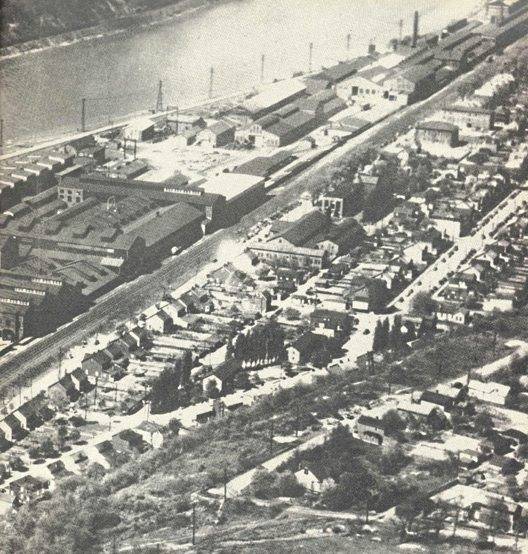PPG Industries Inc. has agreed to pay a civil penalty of $1.2 million to the state for environmental violations stemming from the former Ford City glass manufacturing plant in Armstrong County, the state Department of Environmental Protection said.
The settlement agreement, announced on Tuesday, will require PPG to clean up and monitor polluted discharges coming from the Ford City disposal site in North Buffalo and Cadogan townships, DEP said.
Leachate, defined as liquid that has come in contact with waste material from the glass-making process, has been discharging into the Allegheny River and its tributary Glade Run from the disposal site for decades, according to DEP.
The site, comprising a 70-acre slurry lagoon area and an 18-acre solid waste disposal area, was used by PPG to dispose of glass polishing slurry waste, glass cullet and other solid wastes from the Ford City plant from the 1920s to 1970. In 1972, PPG sold the site to Ford City for $1 for use as a recreational facility. No such facilities were ever constructed, and site access has been — and will continue to be — restricted, DEP said.
While there is evidence the seeps were having an adverse impact on stream quality and aquatic life in the immediate vicinity of the discharge, samples collected downstream did not show an adverse impact, DEP said.
The agreement includes obligations for PPG to conduct monitoring, sampling and seep reconnaissance pursuant to a revised National Pollutant Discharge Elimination System permit. The permit will ensure the proper leachate treatment and elimination of unauthorized discharges, DEP said.
“Reaching this agreement, which addresses legacy contamination, is long overdue, but it is the right thing for the environment and protects future generations,” said Ron Schwartz, director of the DEP Southwest Region Office.
The Pittsburgh Plate Glass Ford City Works opened in 1887 and ceased operations in 1991. At its height, it employed more than 3,500 workers.











